Last Modified: June 24th, 2024
4 min read

NetSuite, a popular cloud-based business management suite, offers robust file storage features. However, costs can escalate quickly for businesses with large data needs. Users pay based on data volume and file count, making cost management crucial. Understanding these expenses helps in minimizing costs while benefiting from NetSuite’s functionalities.
Breakdown of Costly Storage Fees in NetSuite
NetSuite’s storage fees are structured based on two primary factors: data volume and the number of files. Here is a detailed breakdown:- Data Volume: NetSuite charges based on gigabytes (GB) used for storing files. As data storage increases, so do costs. Monitor your data usage to avoid unexpected charges.
- Number of Files: NetSuite also counts the total number of files stored. Each file, regardless of size, adds to the total count and cost. Numerous small files can be as costly as a few large ones.
Solution: Virtually Unlimited File Storage
Virtually unlimited file storage refers to the use of external storage solutions that integrate seamlessly with NetSuite, providing a cost-effective way to manage and store large volumes of data without incurring high fees. This can be achieved by leveraging third-party cloud storage providers such as Amazon S3, Google Drive, or Microsoft OneDrive. These platforms often offer scalable storage plans that can grow with your business needs, allowing you to store an extensive amount of files at a fraction of the cost compared to NetSuite’s native storage options.Excelym’s NetSuite File Cabinet Storage Solution
Excelym’s File Storage Solution offers unlimited storage for $149/month per NetSuite instance, with an initial setup fee. It strategically manages files within NetSuite’s limited 100 GB capacity to avoid extra fees. Users can link their existing cloud providers (AWS, Google Cloud, Microsoft Azure) for more cost-effective storage, bypassing NetSuite’s high additional storage costs. Easily access and share various sales documents within NetSuite Records by attaching them via a link to a size-optimized folder. Supported cloud storage includes Amazon S3, Google Drive, and SFTP, with upcoming support for Microsoft SharePoint/OneDrive, Microsoft Azure, Oracle Cloud, Dropbox, and Box.com. Learn more about Excelym’s NetSuite File Cabinet Storage SolutionInitial Assessment of Current Storage Usage
Before transitioning to virtually unlimited file storage, it’s critical to perform an initial assessment of your current storage usage in NetSuite. This involves several key steps:- Inventory Review: Conduct a comprehensive review of all the files currently stored in NetSuite. List out each file’s size and type to understand the overall data volume and the number of files you are dealing with.
- Usage Reports: Utilize NetSuite’s built-in tools to generate detailed storage usage reports. These reports will give you insights into patterns of file storage, identifying any inefficiencies or redundant files that could be archived or deleted.
- Cost Analysis: Evaluate the current costs associated with your NetSuite storage. Compare these expenses against potential savings from using third-party storage solutions. This analysis will help justify the move to external storage solutions based on quantifiable benefits.
- Data Categorization: Classify files based on frequency of access and importance. Identifying critical files versus archival data will help tailor your storage strategy, ensuring frequently accessed data remains easily available while less critical files can be offloaded to external storage.
Best Practices for Managing File Storage
Tips for Organizing and Managing Files Efficiently
- Adopt a Consistent Naming Convention: Use a clear file naming system for easy retrieval. Names should be descriptive and include dates, project names, or version numbers.
- Categorize Files by Type and Purpose: Organize files into a structured hierarchy based on type and purpose, such as folders for financial documents, client reports, marketing materials, and internal communications.
- Use Tags and Metadata: Enhance files with tags and metadata to improve searchability, allowing for dynamic ways to find files beyond just folder structures.
- Regularly Review and Clean Up: Periodically review and remove outdated or redundant files. This practice frees up storage space and maintains an organized environment.
- Implement Access Controls: Set up access controls to ensure files are only available to authorized personnel, securing sensitive information and minimizing accidental deletions or modifications.
- Utilize Version Control: Use version control systems to track changes and maintain historical records of file versions, useful for collaborative projects.
- Automate Backup Processes: Implement automated backups to regularly save files to a secure, offsite location, ensuring data preservation in case of hardware failures or other events.
Case Studies/Success Stories
Real-life Examples of Businesses That Have Saved Money Using Virtually Unlimited File Storage
- A growing software development company faced rising storage costs due to extensive code repositories, design documents, and project files. By integrating Amazon S3 with their NetSuite, they offloaded over 80% of their file storage, saving approximately 40% monthly. This allowed the company to reallocate resources to product development and customer acquisition.
- A medium-sized agricultural business faced storage issues from high volumes of operational reports, machinery logs, and compliance documents. By switching to Google Drive and integrating it with NetSuite, they maintained comprehensive records at lower costs. This scalable storage option enhanced team collaboration and reduced annual storage expenses by 30%.
- An advertising agency generated vast amounts of digital content, including high-resolution images, videos, and campaign reports. Facing substantial storage fees, they adopted Microsoft OneDrive and integrated it with NetSuite, reducing storage costs by 50%. The improved accessibility and collaboration features boosted team productivity and client satisfaction.
Serge is a Managing Partner and the head of sales and business development.
Published on: May 28, 2024
